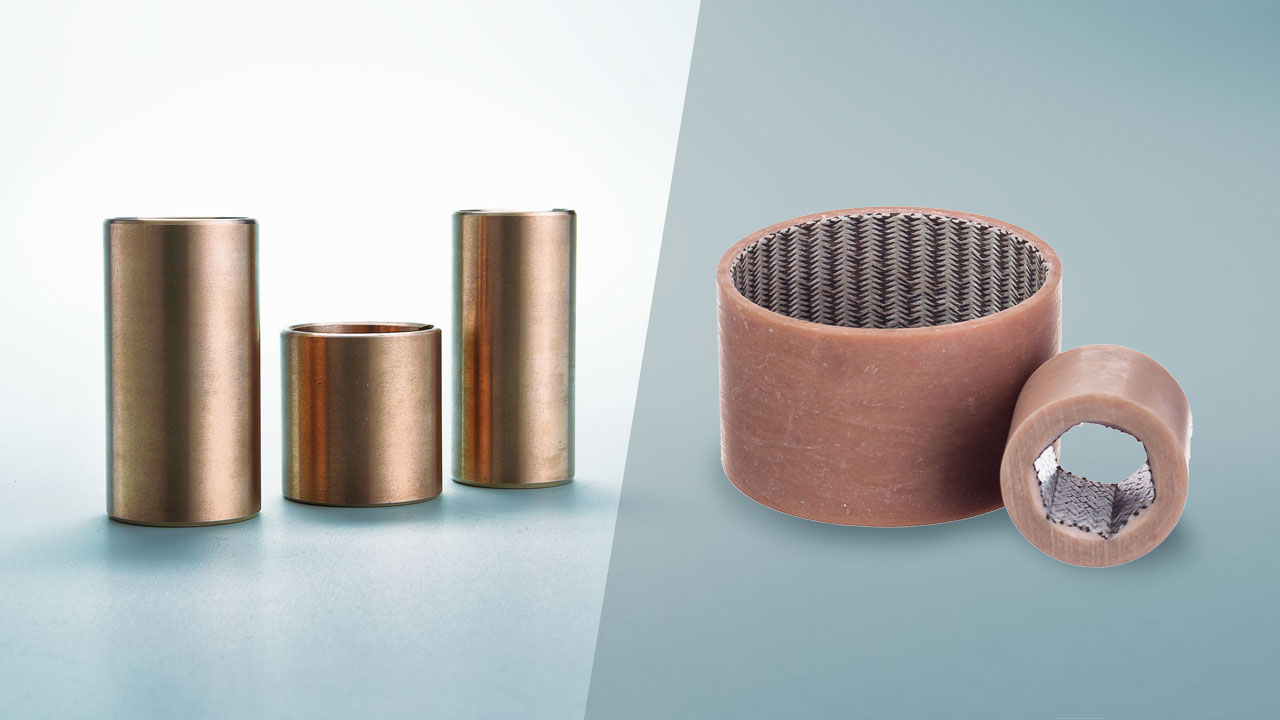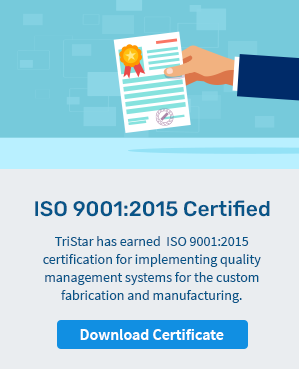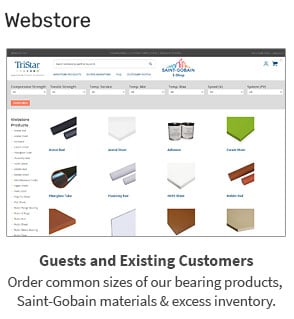
In recent years, fiber-reinforced composites have emerged as a viable alternative to traditional bronze plain bearings, and for good reason. As long-time proponents and suppliers of these materials, we are enthusiastic about the potential of composite materials for transforming the bearing industry.
With their unique properties, composite bearings are overcoming the limitations of metal bearings in a wide range of applications. In this blog post, we will delve into the benefits of composite bearings and discuss why they should be considered for your next project.
A Versatile Solution for Diverse Applications:
Composite bearings provide a robust and low-maintenance alternative to traditional bronze bearings. Their exceptional strength and flexibility make them suitable for various industries, including construction, automotive, and other heavy-duty applications. Regardless of the operating conditions or bearing load, there is likely a composite solution that can effectively replace bronze bearings.
The Advantages of Composite Bearings in Manufacturing:
- Exceptional Load and Shock Resistance: Composite bearings possess inherent elastic properties, enabling them to withstand high-load and high-shock conditions. Unlike rigid metals or bronze bearings, they can accommodate significant compression, shock, and vibration without deformation.
- Outstanding Temperature Performance: Composite bearings excel in a wide range of temperatures, from cryogenic levels to +330°F, depending on whether they are subjected to continuous or intermittent operating conditions. This makes them suitable for applications involving extreme temperatures where metals may fail.
- Compliance with Industry Standards and Regulations: Plastic composite bearings meet various food and medical certifications, and are REACH and RoHS compliant. This feature makes them a superior choice for FDA-regulated food contact or high-sanitation environments compared to metal ball bearings.
- Customizable Design Options: With composite materials, the possibilities for custom designs are virtually limitless. Off-the-shelf options are readily available, while customized designs can be tailored to specific applications. Like metals, plastics can be fabricated to create thick or thin wall constructions or reinforced with hybrid designs featuring multiple layers of materials. This versatility helps protect expensive machinery from bearing failure and allows for press fit and freeze fit mounting methods.
- Enhanced Dimensional Stability and Corrosion Resistance: Unlike metal and bronze plain bearings, composite bearings are highly resistant to rust and corrosion caused by exposure to liquids and chemicals. They can withstand most solutions with minimal pitting or swelling, ensuring long-lasting performance.
- Low Friction Bearings: Composite bearings boast impressive friction performance, with coefficients as low as 0.05 in dry applications and 0.02 in lubricated environments. This makes them a reliable option for applications where friction is a critical concern.
Composites offer numerous advantages over traditional bronze bearings, making them an exceptional choice for a wide range of heavy-duty bearing applications. To learn more about the potential of composite bearings in your next project, download our free Bearing Design Guide or check out our Bearings 101 deep dive.









